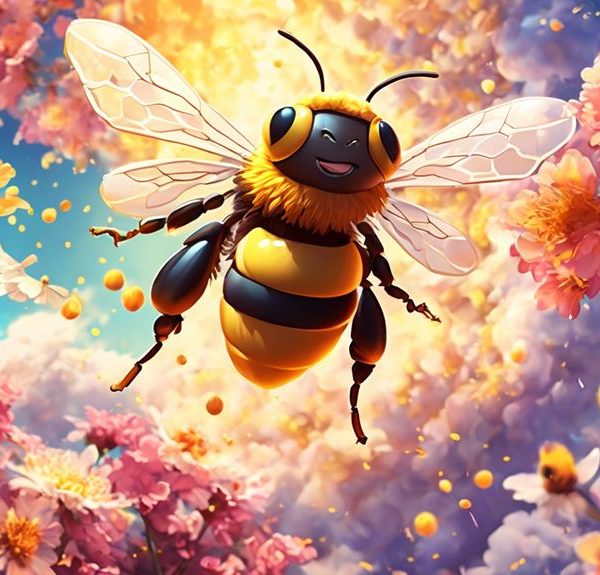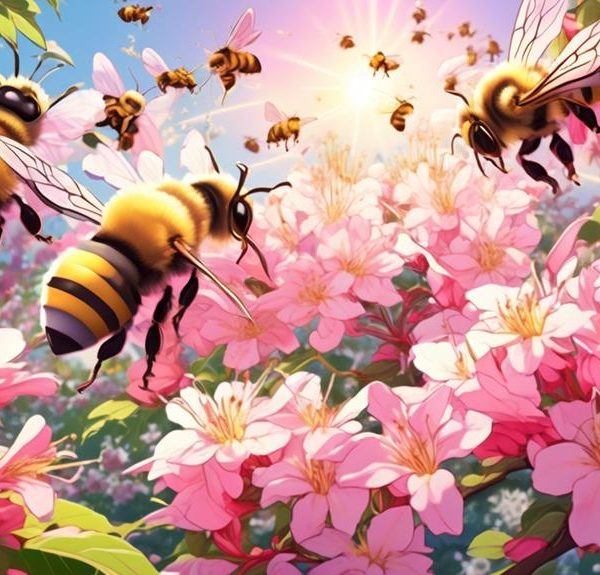Yearning to understand why bees might be attracted to you? Explore the fascinating, yet unlikely, connection between bees and blood type.
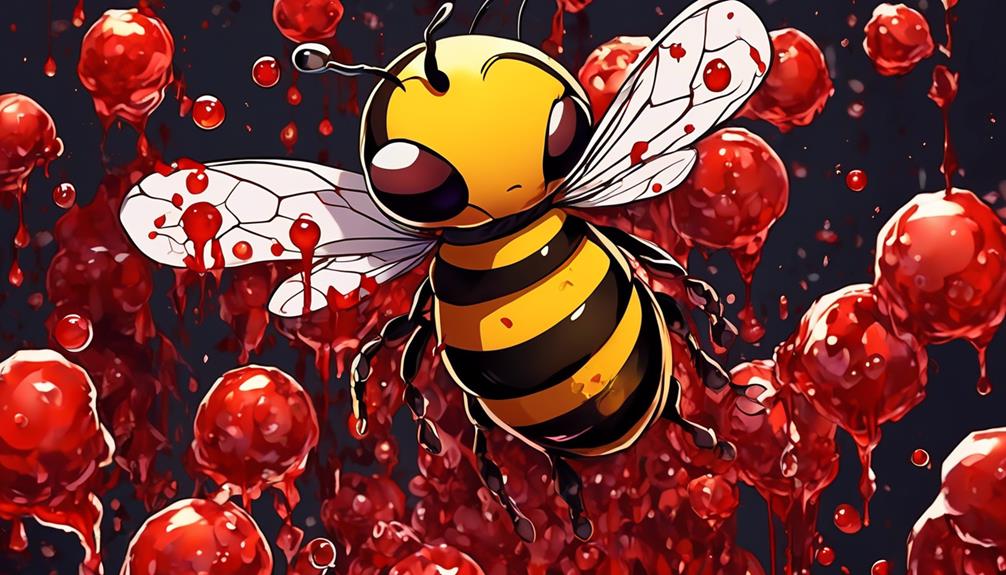
Do Bees Like a Certain Blood Type?
Isn't it curious how coincidences can ignite our curiosity and lead us down a path of unexpected discoveries?
You've probably noticed that bees seem more attracted to you than your friends during those sunny, picnic-filled afternoons. Could it be your perfume, your brightly colored shirt, or something more intrinsic, like your blood type?
Scientifically, the idea of bees being attracted to a certain blood type seems far-fetched and quite fascinating. Yet, it's a question worth exploring, isn't it?
Let's dissect this intriguing phenomenon together, and perhaps by the end, we'll have a clearer understanding of our buzzing friends' preferences.
Key Takeaways
- Bees are primarily attracted to scents, particularly floral or sweet ones, and dark colors associated with flowers.
- Factors like blood type can impact attractiveness to bees, but the connection between blood type and bee attraction is indirect and less influential than other factors like scent profile and clothing color.
- Bees have an exceptional ability to detect human scents, but they do not specifically detect blood types.
- Scientific studies have shown that bees prefer blue and yellow flowers, floral scents, and sugar water over plain water, but there is no clear preference for a specific blood type.
Understanding Bee Attraction

To fully grasp why bees may be attracted to certain individuals, you need to delve into the science of bee behavior and understand their primary motivations. Bees are primarily driven by the need to collect nectar and pollen, essential for their hive's survival.
You'd be surprised to learn that bees don't discriminate when it comes to blood type. They're not blood feeders and don't possess the necessary mouthparts to bite or pierce skin.
What bees are attracted to is the scent. Every individual has a unique scent, influenced by genetics, diet, and environment. Certain scents, particularly floral or sweet ones, might make you more enticing to a bee. They're also drawn to dark colors, which they associate with flowers. So, your clothing can inadvertently make you a bee magnet.
Sweat is another strong attractant for bees. It's not the actual sweat they're drawn to, but the salts and amino acids it contains. So, if you're outdoors and sweating, you're essentially sending out an open invitation to bees.
Understanding these factors can help you minimize your chances of attracting bees and prevent unwanted encounters.
Blood Type: What's The Connection?
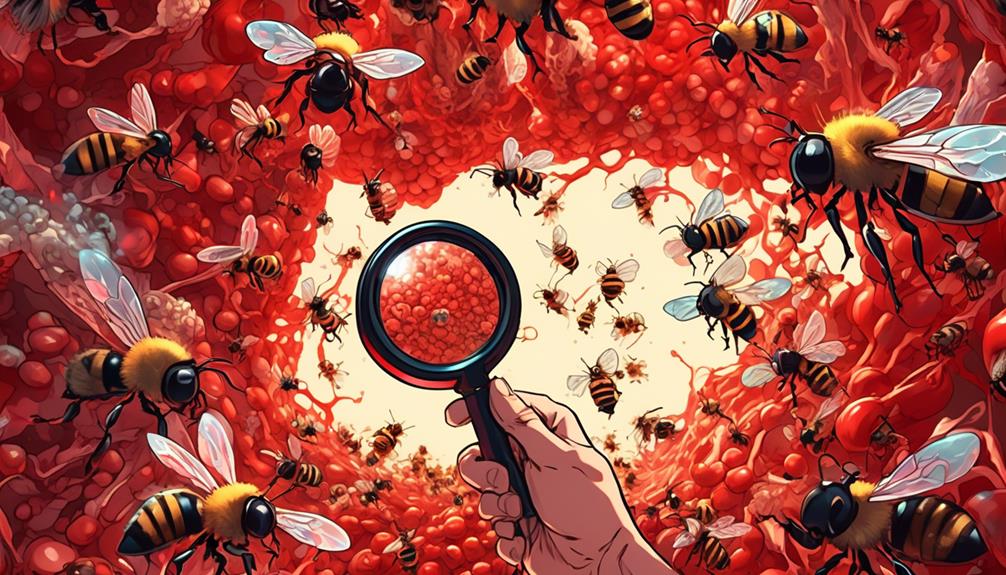
While it's clear that scents, colors, and sweat can attract bees, you might be wondering if there's any connection between bees and human blood types. To answer this, we need to first understand that bees are not attracted to blood at all. Their primary interests are nectar and pollen from flowers, which provide them with necessary nutrients.
However, it's essential to note that individual body chemistry, which can be partly influenced by your blood type, might impact how attractive you are to bees. Some people produce more certain skin oils and sweat compounds that bees find appealing.
Blood Type | Attraction Level for Bees |
|---|---|
A | Variable |
B | Variable |
AB | Variable |
O | Variable |
This table illustrates that the attraction level can greatly vary regardless of blood type. It's your individual body chemistry that plays a significant role. Consequently, if you're a bee magnet, it's not necessarily your blood type that's the culprit. It's likely a combination of various factors, including your scent profile and the colors you wear. So, while there may be a connection between blood type and bee attraction, it's indirect and not as influential as other factors.
Bees and Human Scent Detection
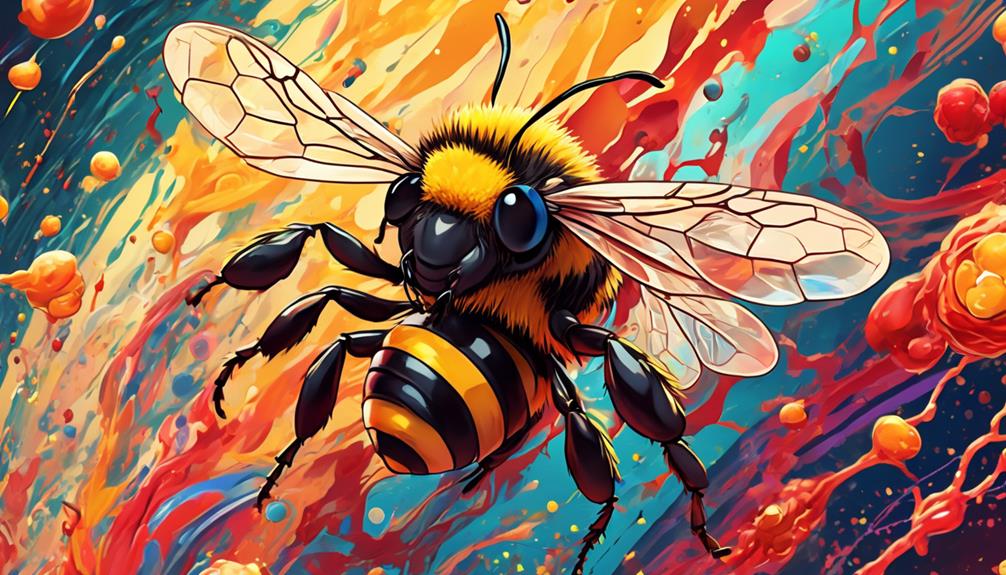
Diving deeper into the world of bees, you might find it fascinating to know that these tiny creatures have an exceptional ability to detect human scents. It's not about blood type, but rather the unique scent each person emits. Research shows that bees can associate these scents with positive or negative experiences, affecting their reactions towards individuals.
You'd be surprised to know that bees have complex olfactory systems, composed of 170 odorant receptors. These allow them to distinguish between different types of flowers, potential threats, and yes, even humans. And while they don't necessarily prefer a specific blood type, they're drawn to certain scents, such as floral or sweet ones. It's also worth noting that bees can remember scents for at least a week, which is quite remarkable given their size.
In terms of fear, bees are more likely to sting when they sense fear pheromones released by humans. It's not the scent itself, but rather the change in body odor due to fear that triggers them. So, the next time you're around bees, remember to stay calm. They're not after your blood type, but they're observant of your scent.
Scientific Studies on Bees Preferences
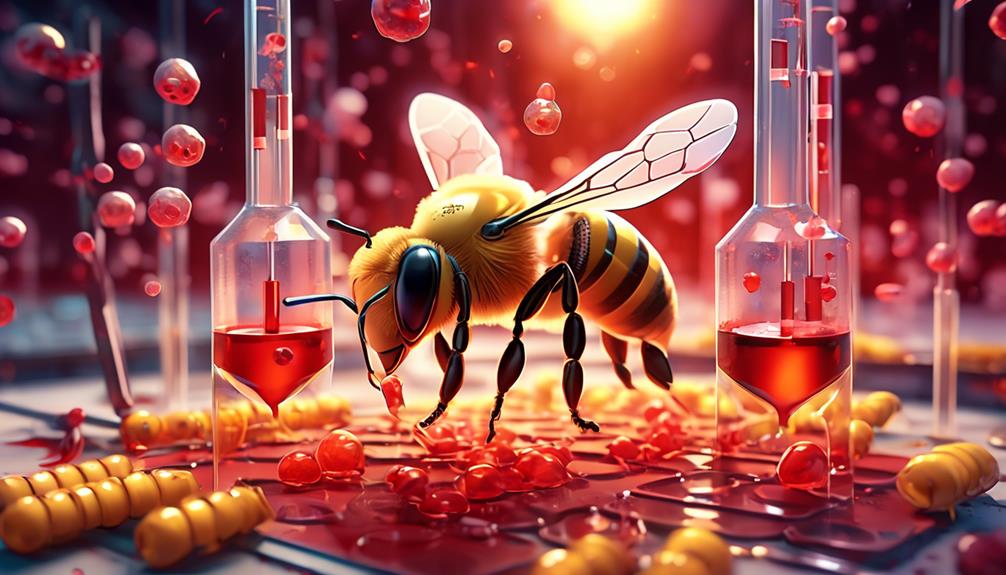
You might be intrigued to learn that numerous scientific studies have been conducted to understand the preferences of bees, revealing fascinating insights into their behavior and choices. For instance, research has shown that bees tend to be attracted to certain colors and scents over others.
Further studies have explored the question of whether bees have a preference for a particular blood type in humans. While the results aren't conclusive, it's interesting to note that bees don't seem to have a clear preference for one blood type over another.
Here's a summary of some notable studies and their findings:
Study | Findings |
|---|---|
"Colour preferences of flower-visiting bees" | Bees prefer blue and yellow flowers |
"The role of scent in honey bee foraging behavior" | Bees are attracted to floral scents |
"Do bees have a preference for human blood types?" | No clear preference found |
"The influence of human sweat on bee behavior" | Sweat attracts bees, but blood type doesn't matter |
"Testing the 'bees prefer sugar water' theory" | Bees prefer sugar water over plain water |
The Role of Bee Perception
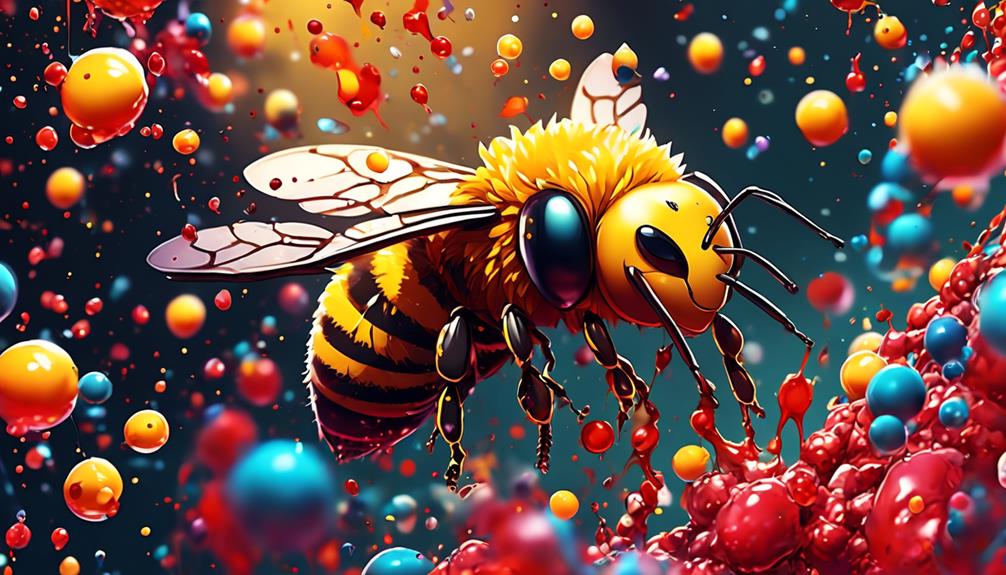
Let's delve into the fascinating realm of bee perception and unpack how these remarkable creatures interact with their environment.
You might first consider their vision. Bees see the world much differently than humans do. Their eyes are designed for recognizing patterns and colors, particularly in the ultraviolet spectrum, which we can't see. They're exceptional at detecting polarized light, something humans can't do, enabling them to navigate using the sun.
Now, let's talk about their sense of smell. Bees have an extremely sensitive olfactory system, capable of discerning a vast array of odors. This sense is vital for locating flowers for foraging and identifying nest mates.
You mustn't omit the role of touch. Bees use their antennae and body hairs to sense vibrations, wind, and temperature changes. This tactile perception is integral for communication within the hive and for landing on flowers.
Lastly, consider their 'taste'. Bees have taste receptors on their mouthparts, antennae, and feet. They can detect sweet, bitter, and salty tastes, guiding them to suitable nectar sources.
Debunking Bee-Related Myths
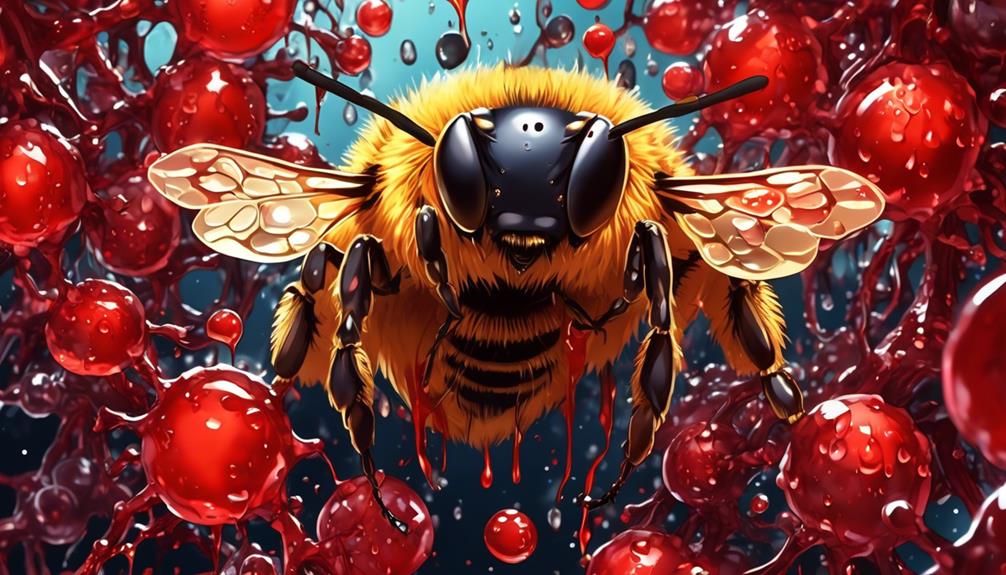
Now, we're going to debunk some common myths associated with bees, shedding light on their complex behaviors and unique characteristics. You may have heard some of these misconceptions, but let's delve into the truth.
Myth | Fact |
|---|---|
Bees are aggressive | Bees are typically defensive, not aggressive. They generally only attack to protect their colony. |
All bees make honey | Only honey bees produce honey. There are over 20,000 species of bees, and most don't make honey. |
Bees die after stinging | This is true only for honey bees. Other bee species can sting multiple times. |
Bees are not important | Bees play a crucial role in pollination, contributing to biodiversity and food production. |
Frequently Asked Questions
What Other Factors, Aside From Blood Type, Might Influence a Bee's Attraction to Humans?"
Bees aren't attracted to humans based on blood type. They're more interested in the scents that you emit, particularly sweat. Bright colors can also draw their attention, making you seem like a big, enticing flower.
Additionally, certain movements, like swatting, can provoke them. Therefore, it's not about your blood type, but your scent, appearance, and actions that'll catch a bee's interest.
Is There a Difference in Bee Attraction Between Adults and Children?"
No, there's no scientific evidence proving a difference in bee attraction between adults and children. Factors like movement, scent, and color of clothing mainly influence bee attraction, not age.
Bees don't distinguish between adults and kids. They're drawn to sweet smells, bright colors, and loud vibrations.
Do Bees Exhibit the Same Behavior Towards All Mammals, or Is There a Specific Interest in Humans?"
No, bees don't show a specific interest in humans over other mammals. They're attracted to scents, particularly floral ones, not blood types. If you're out in nature and surround yourself with scents they like, you'll likely attract bees.
It's your actions, scents, and colors that attract or repel them, not your species or blood type. So, it's not about being a human, it's about what you're doing and wearing.
Are There Specific Geographical Locations Where Bees Are More Likely to Be Attracted to Humans?"
No, bees aren't more attracted to humans in certain geographical locations. Their attraction isn't based on location, but rather on what you're wearing or smelling like. Bright colors and floral scents can attract them.
However, they don't have a preference for blood type. It's a common myth, but there's no scientific evidence to support it. So, you can relax, your blood type won't make you a bee magnet.
How Does the Time of Day or Season Affect a Bee's Attraction to Humans?"
Time of day and season can significantly influence a bee's attraction to you. Bees are most active during the day, particularly in the warmer months. They're attracted to sweat, so you're more likely to catch their attention during outdoor activities.
However, your blood type doesn't factor into a bee's attraction. They're more interested in floral scents and certain colors. So, it's not about who you are, but where and when you are.
Conclusion
In conclusion, there's no evidence to suggest bees prefer a certain blood type. Bees are attracted to certain scents and colors, not blood.
Scientific studies show their perception is based on visual and olfactory cues. Hence, it's time to debunk the myth that bees target specific blood types.
Your interaction with bees is more influenced by your actions, scents, and the colors you wear rather than your blood type.

